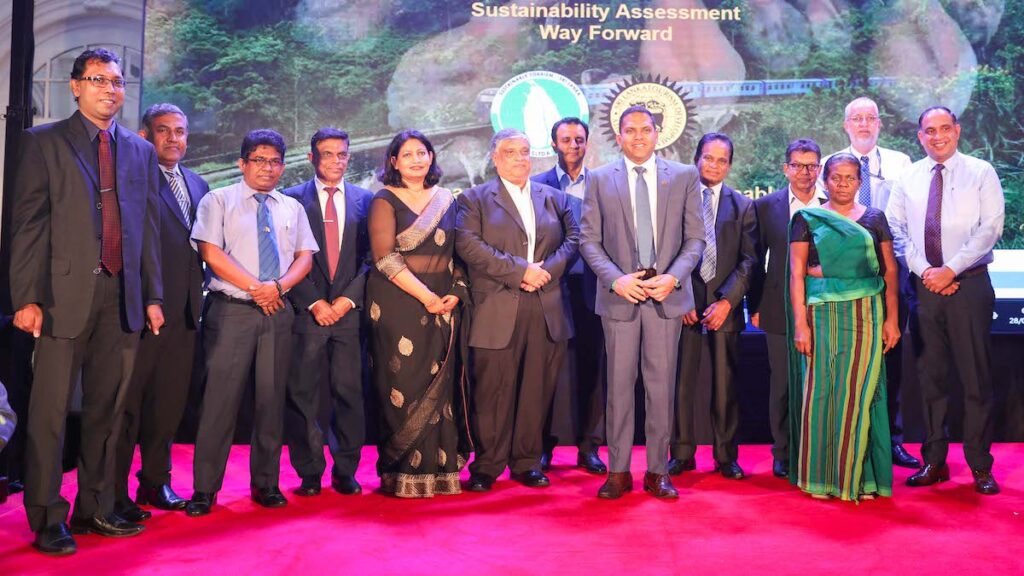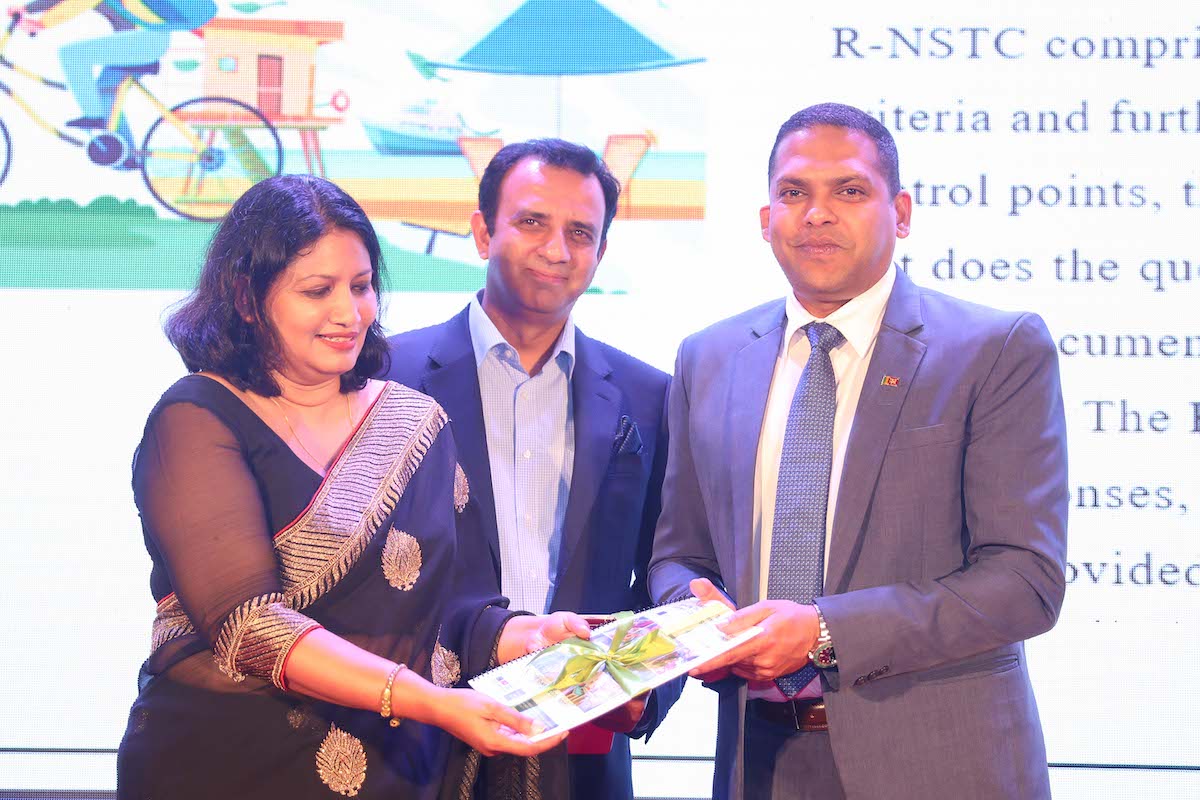Harin Fernando, Minister of Tourism and Lands, Government of Sri Lanka with Solidaridad Asia’s senior leadership at the launch event.
The Sri Lankan tourism industry celebrated its new momentum in Colombo at the end of March, 2024. At the event the Sri Lanka Tourism Development Authority (SLTDA), together with Solidaridad Asia, launched the Readiness for National Sustainable Tourism Certification (R-NSTC) framework.
This pioneering initiative, with its focus on small and medium-scale tourism accommodation and service providers, plans to galvanize the tourism sector and steer it towards a responsible and sustainable tourism industry.
The government plans to play a role in establishing tourist infrastructure and facilities. As SLTDA Chairman Priantha Fernando said in his address, “The tourism sector brings livelihood to the citizens of Sri Lanka, earns much-needed foreign exchange, and contributes more than 10 percent to the GDP. It also brings with it responsibilities – to protect the environment, biodiversity, and wildlife.”
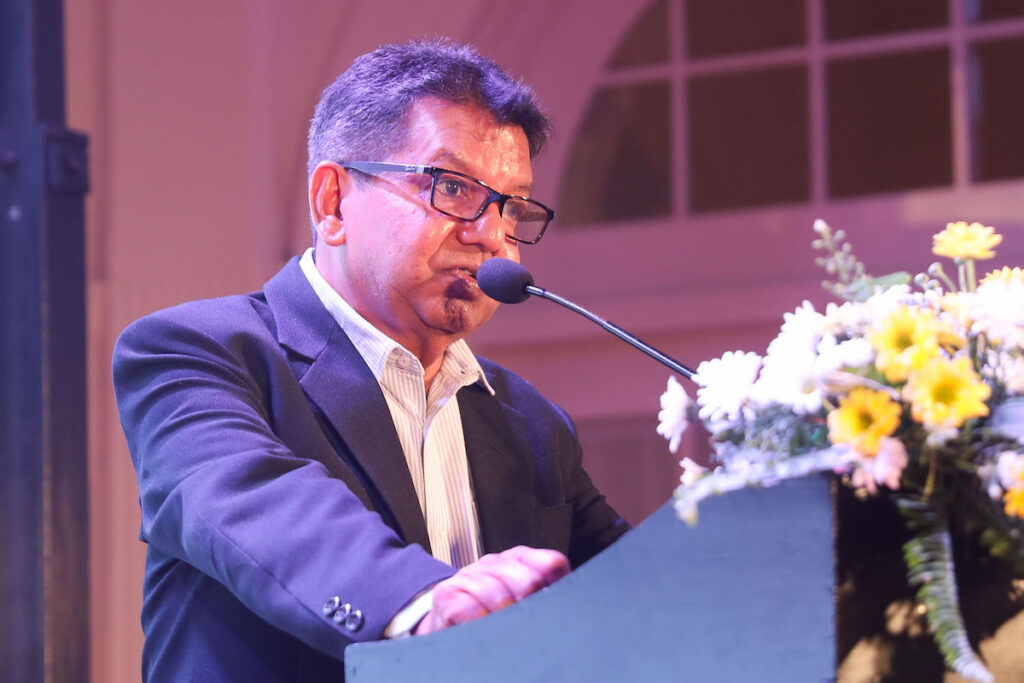
There are several challenges to be addressed within the tourism sector in Sri Lanka. It was found that hotels and resorts consume nine times more water than a household per night per person, and the tourism industry as a whole generates double the volume of solid waste produced by municipalities.
Against this backdrop, SLTDA and Solidaridad Asia have introduced the R-NSTC framework to create a template for incorporating sustainable practices in the country’s tourism sector. The framework has been developed in alignment with the larger goals, shared by both organizations, to ensure livelihood for citizens, while also preserving the environment and the island’s biodiversity.
Sustainable tourism isn’t just about protecting the environment; it’s about harnessing the transformative power of travel to build bridges between cultures and foster mutual understanding.
Dr. Johann Hesse, Head of Cooperation, Delegation of the European Union to Sri Lanka and the Maldives
The R-NSTC was inaugurated on 28 March 2024 in the presence of Harin Fernando, Minister of Tourism and Lands, Government of Sri Lanka, who expressed hope for the future of tourism in the island nation in light of the recent rise in the number of visitors.
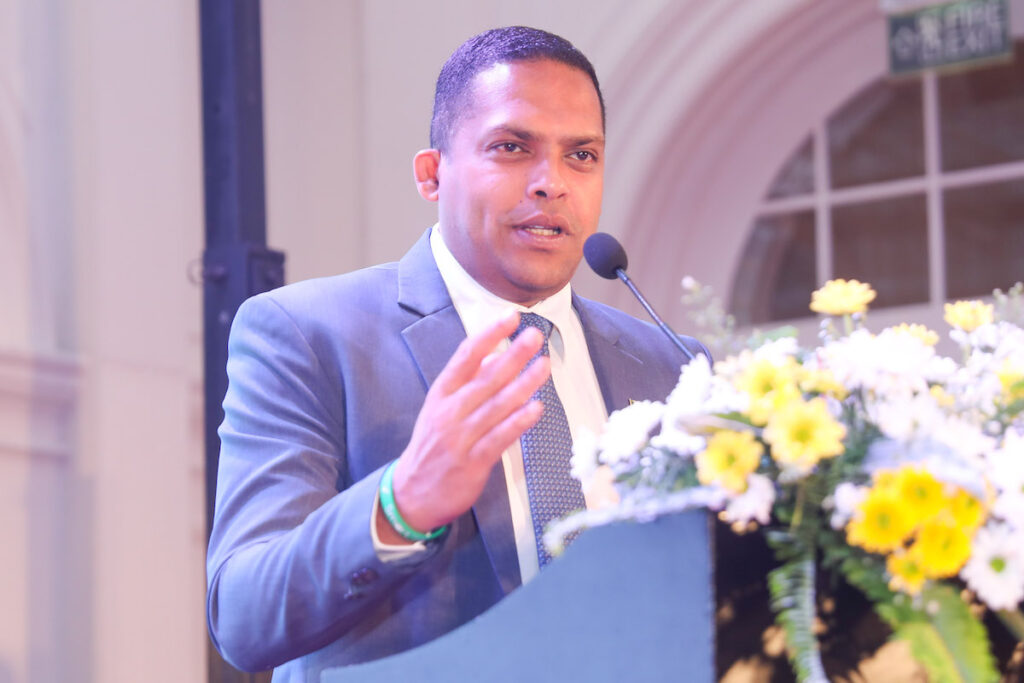
The R-NSTC framework is a self-assessment tool that allows tourism industry players and operators to assess their compliance against social, economic, environmental, and cultural parameters. These are based on nine principles that serve as ‘criteria’ or ‘control points’ — namely, Sustainability Management, Legal Compliances, Staff and Workers, Local Community Engagement and Heritage, Solid Waste Management, Water Management, Energy Conservation, Environment Conservation, and Safety and Security.
The framework will help entities evaluate their level of preparedness for complying with Sri Lanka’s National Sustainable Tourism Certification (NSTC) and the Global Sustainable Tourism Certification (GSTC) programmes.
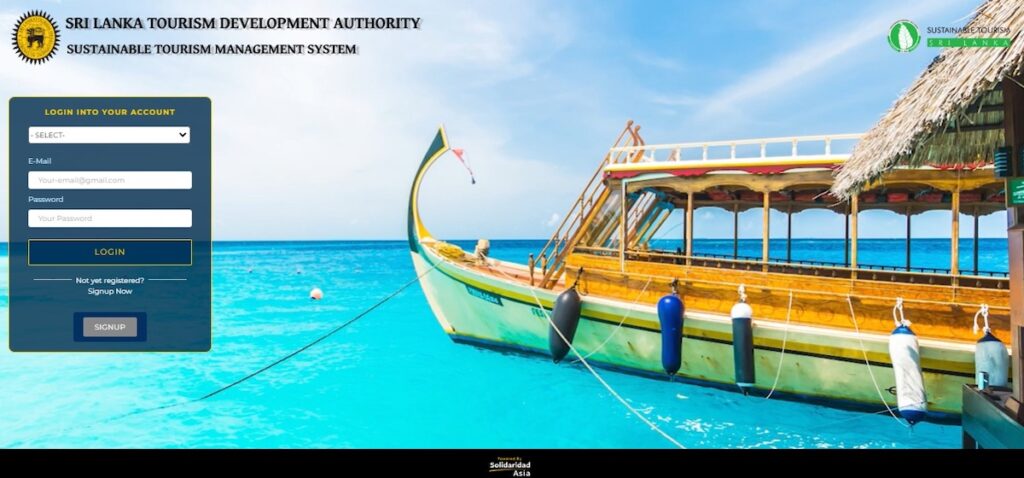
Before an entity decides to invest in the NSTC and GSTC certification process, the framework is designed to encourage corrective measures within the tourism sector that will actively protect biodiversity, workers’ rights, while reducing pollution, improving water efficiency, and promoting local culture and heritage. Upon completion of the R-NSTC self-assessment, the tourism entities will be awarded a Self-Assured Status certificate, which will permit them to apply for NSTC certification.
Promoting travel tool to Uva province at the event
The second highlight of the event was the launch of the Uva Provincial Tourism Promotional website, which is a part of the European Union-funded initiative, Developing Resources and Empowering Communities (DeREC), in the Uva province of Sri Lanka. The site, serving as a guide, an information resource, and a means to connect with essential services, promotes signature tourism sites within the province and provides an exceptional experience for visitors.
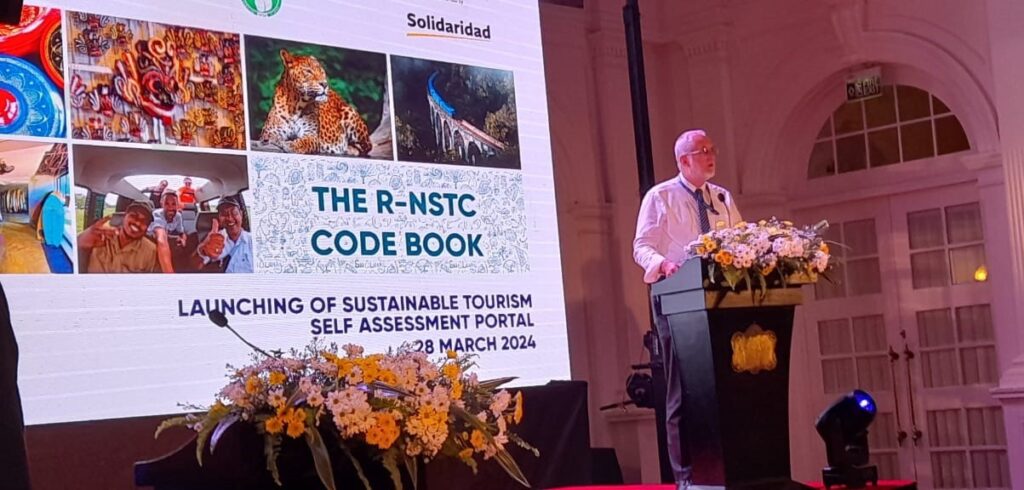
In his keynote address inaugurating the Uva website, Dr. Johann Hesse, Head of Cooperation, Delegation of the European Union to Sri Lanka and the Maldives, said, “By embracing sustainable practices, Sri Lanka can position itself as a beacon of ethical tourism, attracting conscientious travelers eager to immerse themselves in authentic experiences while leaving a positive impact on the places they visit.”
He added, “However, the journey toward sustainability is not without its challenges. It requires a collective effort, a shared vision, and unwavering dedication from all stakeholders. The EU stands ready to walk alongside Sri Lanka on this path, offering guidance, support, and solidarity.”
The launch event for R-NSTC and the new Uva website was attended by over 100 guests from the government, the private sector, corporations, international and local NGOs, stakeholders from the tourism industry, and end-beneficiaries from the small and medium-sized enterprise (SME) sector.
With its natural beauty and cultural heritage, Sri Lanka is ready to emerge as a leader in responsible travel.
